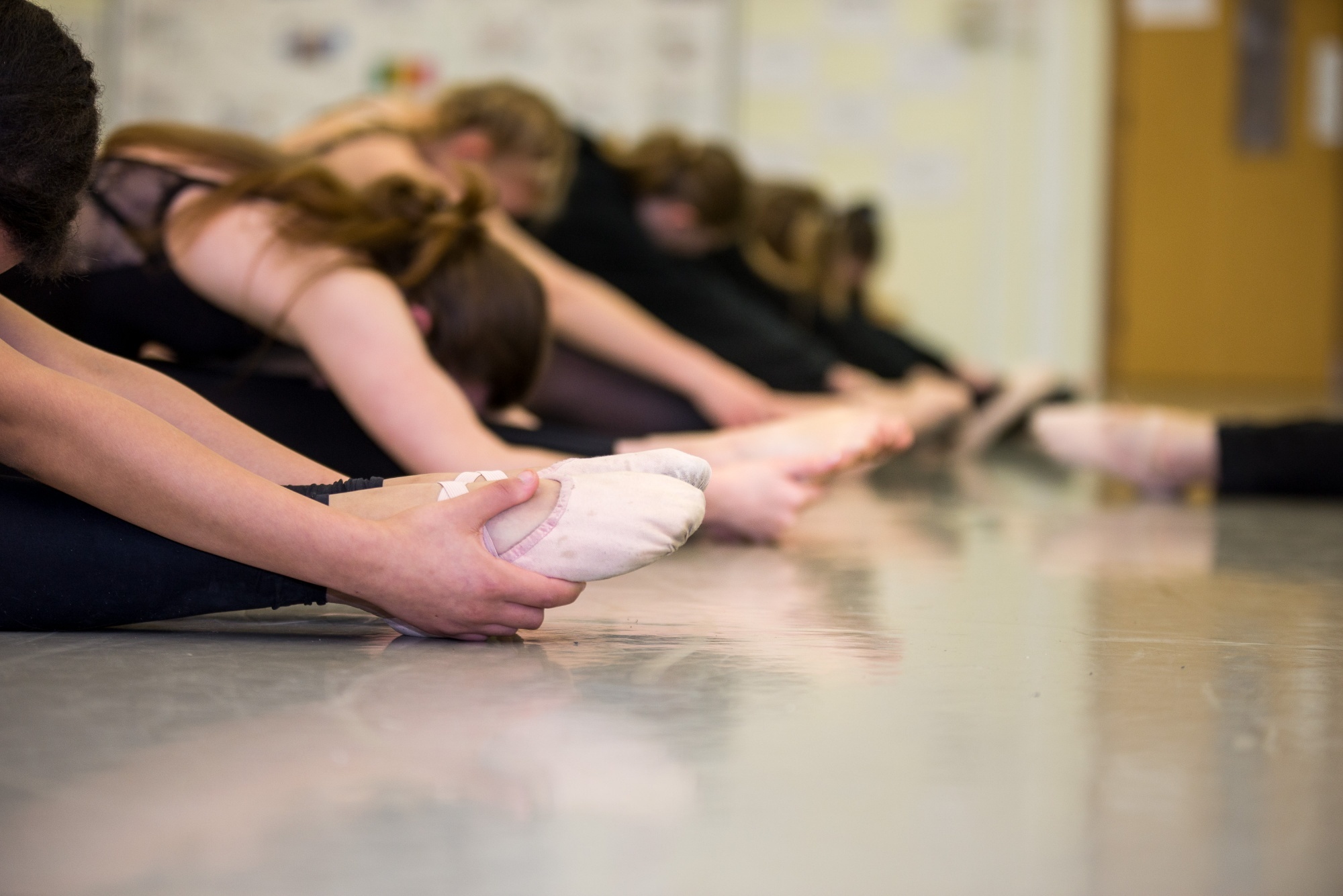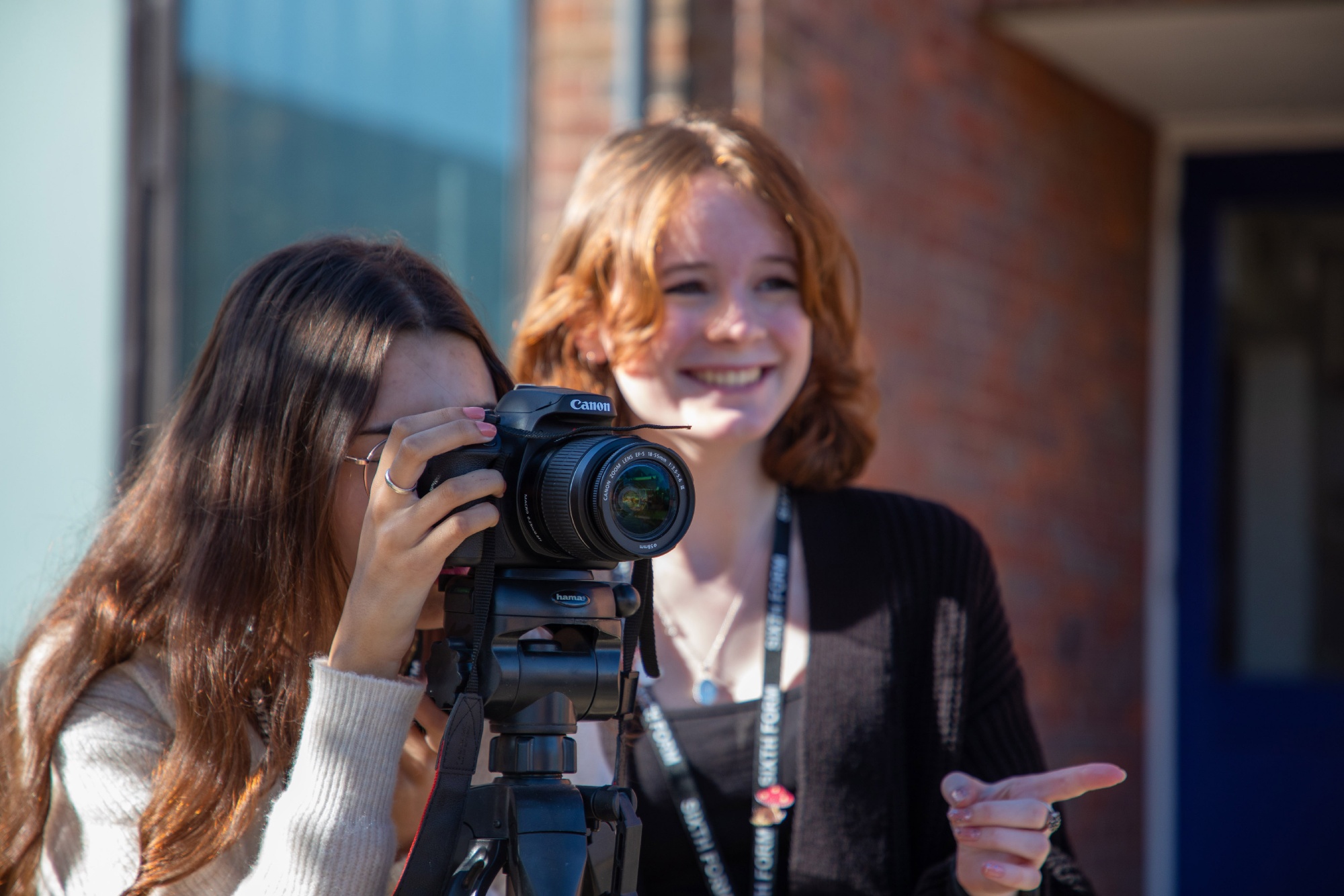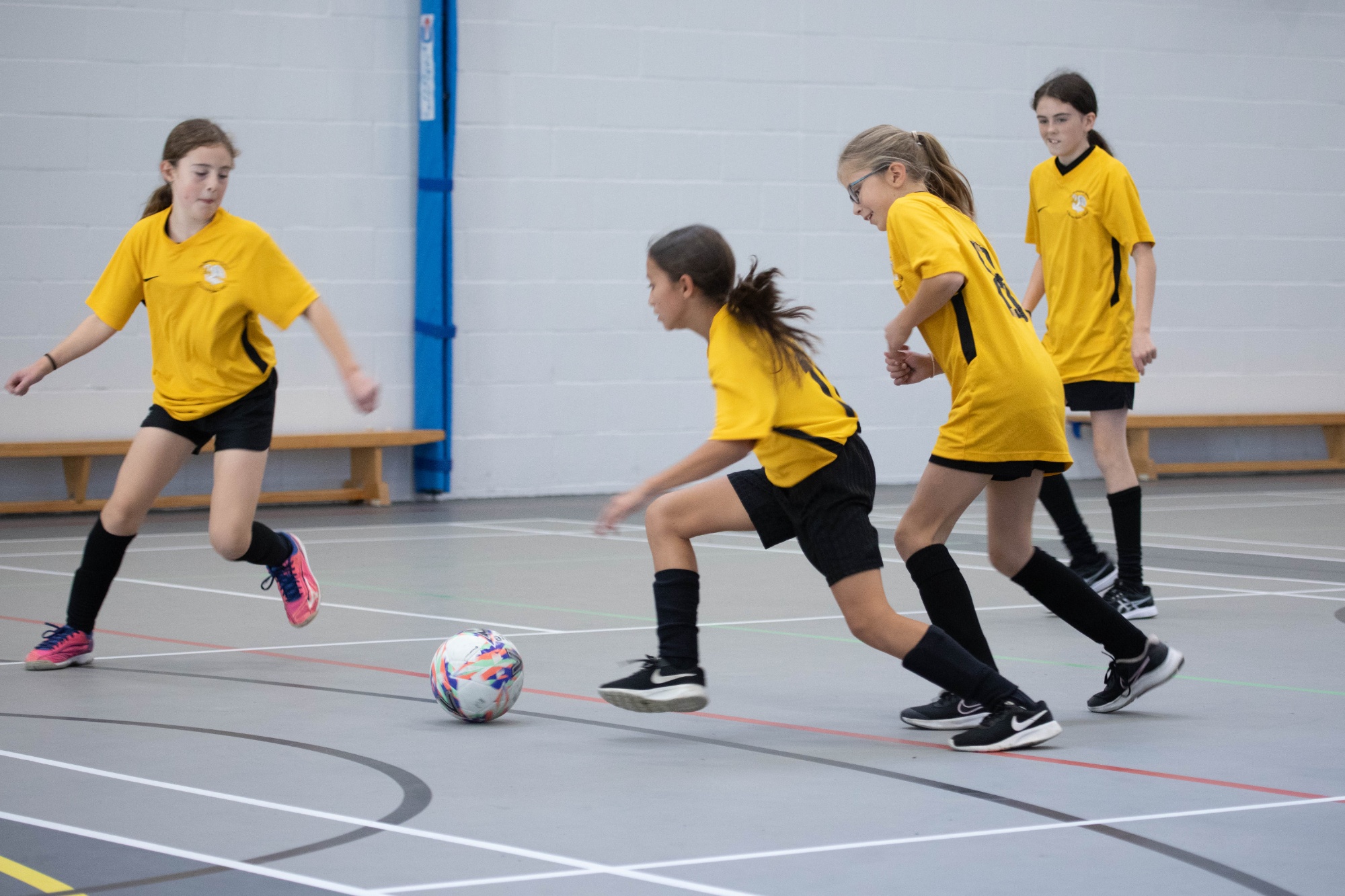Courses - Videos & Information
Our curriculum is designed to offer choice and breadth of opportunities as well as traditional subjects. Students choose subjects that best suit their abilities, interests and aspirations.
We offer a wide range of Level 3 courses, including traditional A levels and vocational academic qualifications. Brief details of the courses offered are included in this booklet and are also available as individual web-pages on our website. We would also encourage you to talk Curriculum Leaders and Teachers to find out more detail about the particular subjects you are interested in.
To gain entry to the Sixth Form, students need to attain 5 GCSE (or equivalent) at Grade 9 to 4, Distinction to Pass grades. In addition to this, each subject has clear entry criteria identified in the course information, please refer to this when selecting individual subjects.
Students are fortunate to go on many trips, ranging from one day excursions through to residential trips. A rich, exciting, extra-curricular range of opportunities will broaden your horizons, develop knowledge and skills along with personal development such as working with others.
We will endeavour to offer the courses described, however, this could be subject to change.
ACCOUNTANCY - A LEVEL: LEVEL 3
The Course
In the first year of the course, you will concentrate on mastering bookkeeping and learning how to check your accounts. You will also learn how to prepare financial statements for different types of businesses and will use financial information to help with planning and analysing performance.
In the second year of the course, your knowledge of bookkeeping will be extended for use in businesses where records of transactions are incomplete. You will also learn about published accounts and various uses and techniques of management accounting. You will focus on the interpretation, analysis and communication of financial information, and the impact of ethical considerations.
Why Accountancy?
A Level Accounting is a very practical course that focuses on how a business records its financial transactions. It is primarily aimed at those students who would like to pursue a career dealing with the financial aspects of a business. It also appeals to those students who would like to work for themselves as it provides a solid understanding of how a business manages its money. The course helps students to develop knowledge and understanding of the purposes of accounting procedures and apply them to a variety of general accounting problems.
The aim of the course is to provide students with a detailed understanding of the accounting systems for different types of business organisations. This includes the preparation, interpretation, analysis and communication of accounting information. It is not necessary for students to have studied GCSE Accounting and no prior knowledge of accounting is necessary. The course looks at both Financial and Management accounting.
What's expected from me?
This course is suited for students who enjoy mental maths, figures and problem-solving. It suits learners who can work accurately with a methodical, numerical and logical mind. You also need to be able to analyse business information and to communicate your conclusions in writing to interested parties.
Entry requirements for A Level Art: students should have achieved a Grade 5 or above in English and Maths.
Examination Board: AQA A-Level Accounting.
art - a level: level 3

The Course
The course will develop your intellectual, imaginative and creative skills. You will work with many different and creative media to develop your experimental, practical, technical and expressive skills. A Level Art disciplines include painting, drawing, printmaking, sculpture and alternative media.
In Sixth Form. students study the full A Level in Year 12 and 13. During this time, students complete Component 1 - A practical investigation supported by written material. Students are required to conduct a practical investigation, into an idea, issue, concept or theme, supported by written material. The focus of the investigation must be identified independently by the student and must lead to a finished outcome or a series of related finished outcomes. A Level Art is a clear progression route from GCSE. The marking criteria is very similar allowing students to fully engage with the subject and they are able to plan their work more effectively.
Why Art?
You will have the opportunity to work with a broad range of media, both traditional and new. You will visit galleries and studios and develop your knowledge of art, craft and design in contemporary and past societies. Please note, Art is a heavily coursework based subject, sustained time commitment is needed.
Students who are particularly creative can study Photography and Art at A Level.
What's expected from me?
When studying A Level Art, students are expected to utilise their free time effectively to ensure all work is completed. We have a Sixth Form area within the department for students to use during their study periods. Students are expected to meet deadlines and ensure the work they produce is to a consistently high standard. Students that do well In Art tend to be creative and generally artistic.
Entry requirements for A Level Art: students should have achieved at least a Grade 4 for Art GCSE.
Examination Board: AQA Level 3 Advanced GCE in Art and Design / Photography.
biology - A level: level 3
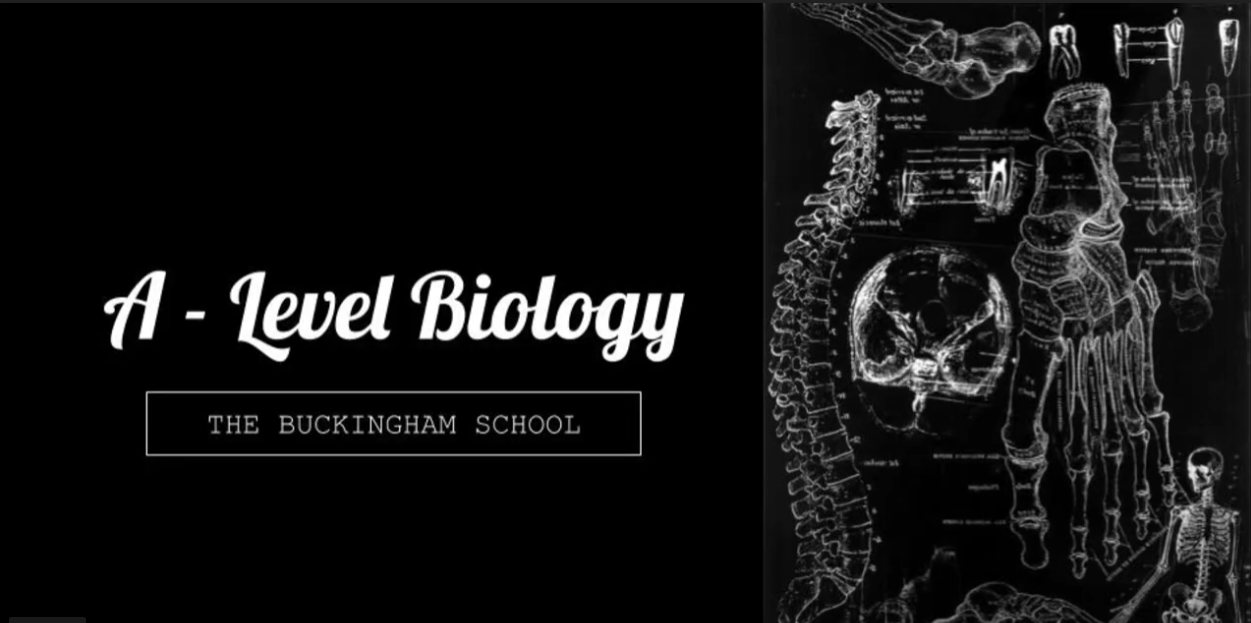
The Course
Biology is a very popular choice after GCSE. It is both interesting and challenging, stimulating students into developing a wider interest in the subject.
In the first year of the course, students will learn about biological molecules, expand their knowledge about cells and how organisms exchange substances with their environment, genes, variation and relationships in an ecosystem. In the second year of the course topics taught concern energy transfers in and between organisms, how organisms respond to changes in their environment, as well as genetics, populations, evolution and ecosystems, with a final topic on control of gene expression.
Alongside the study of these units, students are also assessed on their practical skills. This is a compulsory requirement of the course. It will appear on all students’ certificates as a separately reported results, alongside the overall grade for the qualification.
The written examinations will consist of three exams at the end of Year 13.
Why Biology?
Studying Biology in the Sixth Form is a pathway to a wide variety of degrees, higher qualifications at universities and other institutions.
Biology students may like to consider the following courses among others: anatomy, animal behaviour, biological sciences, biomedical sciences, biotechnology, marine biology, botany, microbiology, dentistry, toxicology, food studies, genetics, medicine, midwifery, neurosciences, nursing, pharmacology, physiotherapy, psychology, sports and exercise science, or veterinary science. The transferable skills gained from a degree in science subjects are highly valued in the corporate world.
Biology complements A level Geography and in particular Extended Project Qualification.
What’s expected from me?
We expect enthusiasm, personal organisation and dedication. Students need to demonstrate that they are keen to learn, to make progress and to be actively involved in all aspects of the course. They will need to plan ahead to meet deadlines, be independent in expanding the breadth and depth of their knowledge and be pro-active in identifying areas for development.
Entry requirements for A Level Biology: students should have a Grade 6 or above in GCSE Biology, or 6-6 or above in GCSE Combined Science. A Grade 6 or better in GCSE Mathematics is also required, as well as a Grade 5 in GCSE English.
Examination Board: OCR Level 3 Advanced GCE in Biology A
business studies - btec NATIONAL CERTIFICATE: level 3

The Course
A two year course Equivalent in size to one A Level. 4 units of which 3 are mandatory and 2 are external.
Mandatory Units are
- Exploring Business (Coursework)
- Developing a Marketing Campaign (External Exam)
- Personal & Business Finance (External Exam)
- One further Coursework Unit (To be determined)
The Extended Certificate is for learners who are interested in learning about the business sector alongside other fields of study, with a view to progressing to a wide range of higher education courses, not necessarily in business-related subjects. It is designed to be taken as part of a programme of study that includes other appropriate BTEC Nationals or A Levels.
Why study Business?
“Business opportunities are like buses, there’s always another one coming.” Sir Richard Branson
No matter who you are, we are all affected by the activities of business. Businesses provide us with careers, goods, services, income, homes and leisure. There is very little in the world that is not governed by business activity. It is a factor of our everyday life and whether or not a student intends to forge a career within a large multi-national corporation, express their own sense of enterprise through self-employment or simply enjoy life as a consumer, Business Studies will provide both knowledge and understanding of how the business world operates and our own role in it.
'If you do things well, do them better. Be daring, be first, be different, be just' - Anita Roddick, founder of The Body Shop
Business Studies gives you a transferable skill set needed for your lifelong career.
The subject opens up many opportunities for trips, work experience and guest speakers. Business complements Geography, English, Psychology, Finance and Law in particular.
What is expected of me?
You will be enthusiastic, looking to develop your deeper knowledge through case studies and applying your knowledge through coursework.
You will develop key skills needed to be successful on the course but also in the workplace.
Entry requirements for Business Studies: students should have achieved a Grade 4 or above in English.
Examination Board: Pearson BTEC Level 3 National Extended Certificate in Business
UDE42 - Pearson Code
chemistry - A Level: level 3
The Course
Throughout this course, you will build on your knowledge of Physical Chemistry including, but not limited to bonding, the Avogadro constant, thermodynamics and calorimetry. You will also expand your understanding of Inorganic Chemistry including but not limited to Periodicity, transition metals and catalysts. As a final unit, you will discover and explore Organic Chemistry which involves the study of Carboxylic acids, polymers, spectroscopy, organic analysis and many more topics.
Why Chemistry?
As a fundamental part of the A Level Chemistry course you will have the chance to develop a range of theoretical and practical skills highly in demand amongst employers; problem-solving, collecting precise/accurate data, interpreting results mathematically to allow valid conclusions to be drawn when carrying out scientific investigations.
As a fundamental part of the A Level Chemistry course you will have the chance to develop a range of theoretical and practical skills highly in demand amongst employers; problem solving, collecting precise/accurate data, interpreting results mathematically to allow valid conclusions to be drawn when carrying out scientific investigations.
Chemistry naturally relates to all of the other sciences such as; Biology, Physics and Psychology, as well as Physical Education/Sport and A Level Mathematics.
Students may go on to study and work in Biotechnology, Forensic Science, Medicine, Sports Science, Nano technology, Pharmacologist, Engineering or Natural Sciences for example.
Chemistry naturally relates to all of the other sciences such as; Biology, Physics and Psychology, as well as Physical Education/Sport and A Level Mathematics.
Students may go on to study and work in Biotechnology, Forensic Science, Medicine, Sports Science, Nano technology, Pharmacologist, Engineering or Natural Sciences for example.
What’s expected from me?
We expect passion for the subject, good personal organisation and commitment. You need to demonstrate that you are eager to learn, make progress and are willing to be actively involved in all aspects of the course as well as the wider Science department. You will need to have good time management skills to meet deadlines and balance revision. Throughout the course you need to be independent in expanding your knowledge/understanding of Chemistry and be pro-active in identifying areas for development.
Entry requirements: students should have a Grade 6 or above in GCSE Chemistry, or 6-6 or above in GCSE Combined Science. A Grade 6 or better in GCSE Mathematics is also required, as well as a Grade 5 in GCSE English.
Examination Board: OCR Level 3 Advanced GCE in Chemistry
Criminology Applied Diploma WJEC: level 3

The Course
Studying this course gives students the opportunity to gain a nationally recognised qualification from which they can progress to employment or higher education. The Level 3 Applied Diploma is an A level equivalent.
Unit 1 will enable the learner to demonstrate understanding of different types of crime, influences on perceptions of crime and why some crimes are unreported (Coursework assessed unit).
Unit 2 will allow learners to gain an understanding of why people commit crime, drawing on what they have learned in Unit 1 (Exam unit).
Unit 3 will provide an understanding of the criminal justice system from the moment a crime has been identified to the verdict (Coursework assessed unit).
In the final unit, learners will apply their understanding of the awareness of criminality, criminological theories and the process of bringing an accused to court in order to evaluate the effectiveness of social control to deliver criminal justice policy (Exam unit).
Why Criminology?
An understanding of criminology is relevant to many job roles within the criminal justice sector, social and probation work and sociology and psychology as it is a qualification with elements of psychology, law and sociology that complements studies in humanities.
The course is designed primarily to support learners progressing to university, to be exciting and interesting suited to the skills and knowledge needed for Criminology, and Law in the Sixth Form and employment within the sector either directly or through the apprenticeship route.
What’s expected from me?
You would be expected to research and have a proactive attitude and independent style of learning. You should also have good time management and organisation, meet deadlines and apply theory to given situations.
Entry requirements for Criminology BTEC Grade 3: students should have achieved a Grade 4 or above in English.
Examination Board: WJEC Level 3 Applied Diploma in Criminology
ENGLISH LANGUAGE - A LEVEL: LEVEL 3
The Course
English Language at A Level is very different from your studies at GCSE. Studying English at an advanced level introduces you to the world of linguistics (the science of language). This doesn’t mean test tubes and chemicals, but instead looks at how and why language makes us human.
One component of the course involves the study of language in relation to the individual and society. This includes analysing and comparing a wide variety of texts, and studying children’s spoken and written language development from 0-11 years. Another component focuses on wider themes of language diversity and change, with essay-writing about these topics and analysis of texts presenting ideas, attitudes and opinions about them. There are also opportunities to produce your own writing about language topics and ideas. In addition there is a more individual element where you will produce your own data-based language investigation, based on independent research, and a piece of original writing with a commentary.
Course Content:
There are two exams, one for each component:
Paper 1: Language, the Individual and Society - 2 hours and 30 minutes (40% of the overall grade)
Paper 2: Language Diversity and Change - 2 hours and 30 minutes (40% of the overall grade)
NEA Coursework: Language Investigation (2000 words excluding data) Original Writing and commentary (1500 words) - (20% of the overall grade)
Why English Language?
English Language at A Level enables you to:
- develop skills of linguistic analysis and evaluation
- explore language usage in a wide variety of situations and social contexts
- respond to written, spoken and electronic text
- study child language acquisition and language change
What’s expected from me?
Although English Language requires less reading than English Literature do not be fooled into thinking this is an ‘easier’ course you will be expected to understand and analyse advanced linguistic terminology and use your independent time to complete secondary reading of fiction, non-fiction and critical academic essays relevant to the topics studied.
Entry requirements for A Level English Language: Entry Requirements: students should have achieved a Grade 6 or above in GCSE Language and English Literature.
Examination Board: AQA Level 3 Advanced GCE in English Language (7702)
ENGLISH LITERATURE - A LEVEL: level 3
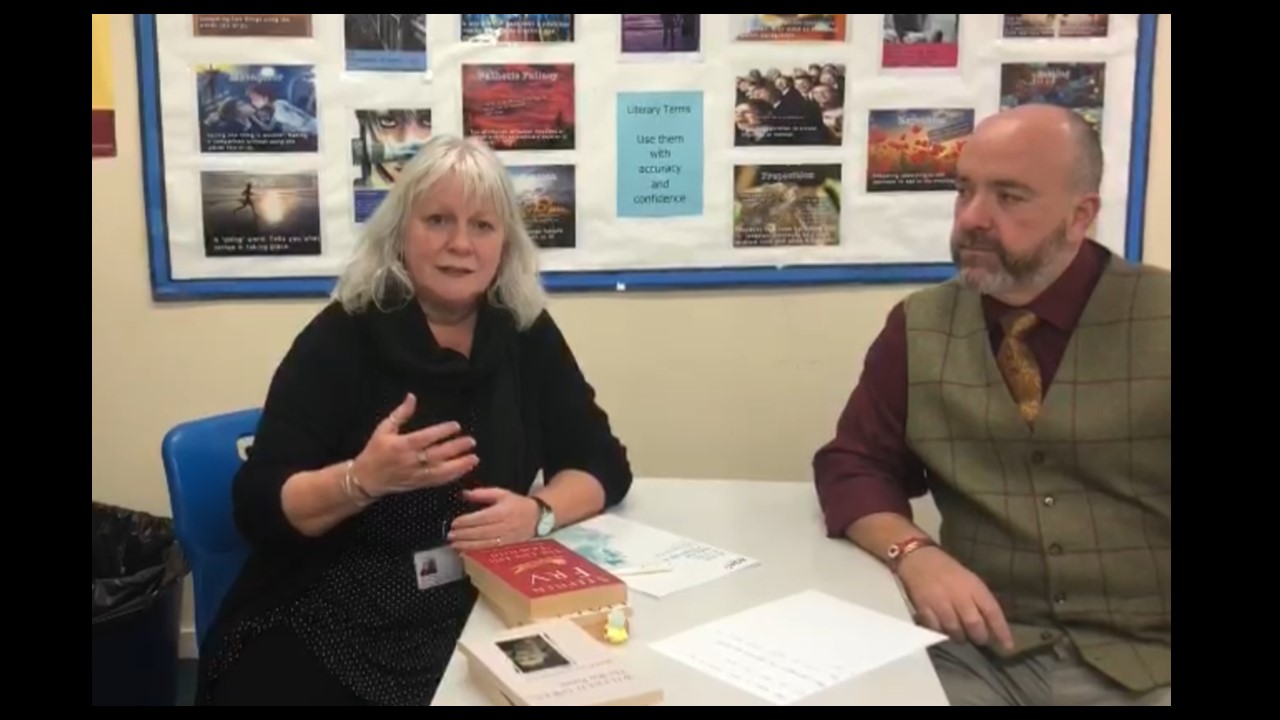
The Course
This challenging course will develop students’ knowledge and understanding of English Literature through the study of novels, plays and poetry. The course encourages students to ‘read around’ the set texts in terms of critical views, social and historical context and other texts by the same authors on the syllabus. You will develop your own perspectives on everything you read and be able to argue your views well. The course will develop your skills in constructing a logical and coherent argument, which is the basis of an analytical essay.
Course Content:
Paper 1: Love through the Ages
Study of three texts: one poetry and one prose text, of which one must be written pre-1900, and one Shakespeare play. The study of these texts culminates in a 3 hour exam paper.
Paper 2: Texts in shared contexts
Option 2A: World War I and its aftermath
Study of three texts: one prose, one poetry and one drama, of which one must be written post 2000. The study of these texts culminates in a 2hr 30 minutes exam paper.
Non-exam assessment: Independent critical study (coursework)
Comparative critical study of two texts, at least one of them must have been written pre-1900
Students will be guided towards choosing 2 texts of sufficient challenge and literary merit to warrant study and will be supported through the construction of their coursework essay . The final piece should be around 2,500 words.
Why English Literature?
English Literature A level provides an excellent foundation for degree level study in almost any field. The study of English Literature is considered a strong and respected academic course, grounding students and preparing them for a wide range of careers. Employers recognise the immense value of a literary education and opportunities exist in careers ranging from diplomacy to law and accountancy to the caring professions.
The A-Level History curriculum can support A Level English Literature as the course requires students to have a detailed understanding of historical contexts and literary periods. Media can also work alongside this course as both courses focus on skills of analysis and interpretation. Study of Psychology can similarly support English Literature, as literary texts explore the human condition and big issues such as Love and War.
What’s expected from me?
When studying A Level English Literature, students will be provided with a reading list and are expected to complete extensive wider reading in their own time and to keep a reading journal.
Entry requirements for A Level English Literature: students should have achieved a Grade 6 or above in GCSE English Language and Grade 6 in GCSE English Literature.
Examination Board: AQA Level 3 Advanced GCE in English Literature.
extended project qualification - ENRICHMENT
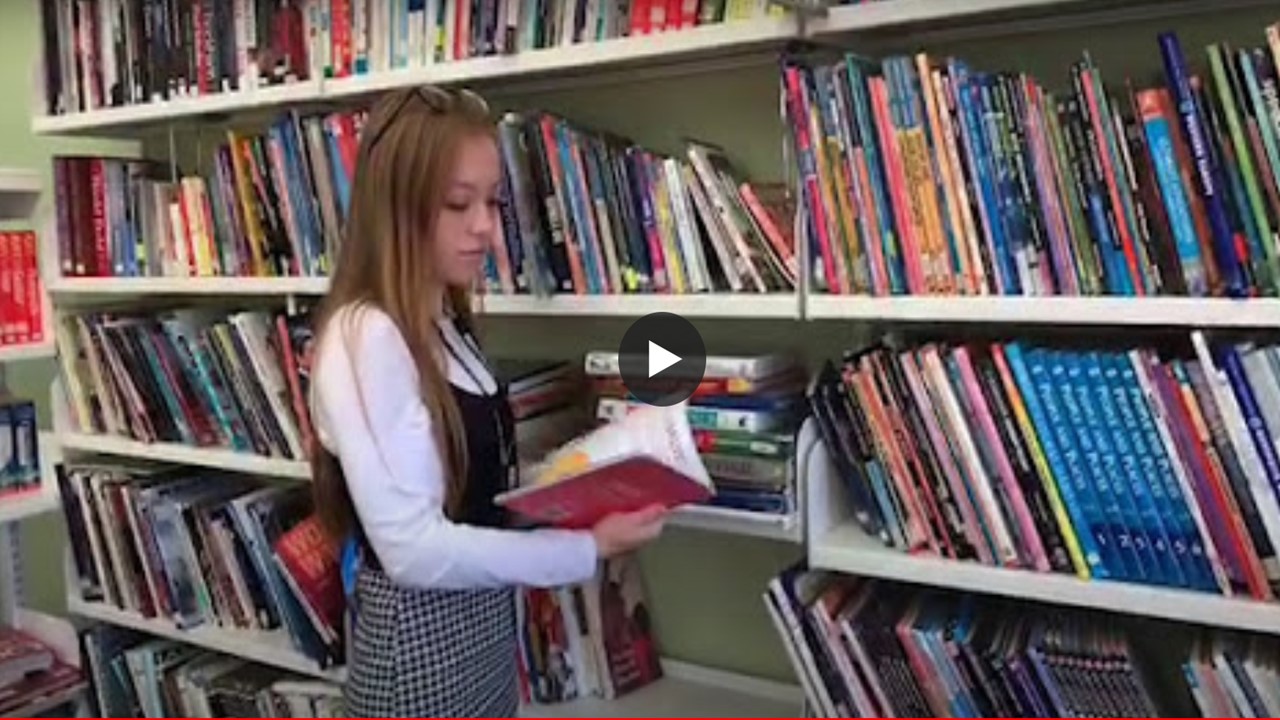
The Course
The Extended Project is a single piece of work requiring a high degree of planning, preparation, research and autonomous working. The students' choice of topic is free, although it cannot duplicate anything that you are studying in your KS5 subjects. Students must show that their study is academically useful, either related to their current course of study, or their future career. It takes the form of a dissertation and will require a detailed preparation/planning stage, the production of the report and a presentation that summarises the report. Extended Project Qualification has been praised by universities for guiding students into higher education and carries UCAS points.
Why Extended Project?
Extended projects can help students to develop and demonstrate a range of valuable skills through pursuing their interests and investigating topics in more depth.
Students will develop:
- Research skills
- Proactive attitude
- Independent style of learning
- Good time management
- Organisation skills
- Ability to meet deadlines.
These transferrable skills are much needed in all subjects at Sixth Form and in future careers.
Examination Board: AQA Level 3 Extended Project
FILM STUDIES - A LEVEL: level 3

The Course
- Which actor links Star Wars: The Force Awakens, the Mission Impossible franchise and The Cornetto Trilogy?
- What was significant about the film The Jazz Singer when it came out in 1928?
- Which British Film, directed by a TV comedian, launched the careers of Jodie Whittaker and John Boyega?
If you know the answers to these questions or have a sudden burning desire to find out then A level Film studies is the course for you.
As a student of cinema you will learn to become an ‘active reader’ of film as opposed to a passive viewer - you will be able to comment on stylistic trends of films from different directors, time periods and countries.
As the world’s most popular art form, Film has the power to transport audiences to new or old worlds, critique society or simply entertain - it is impossible to overestimate the influence that the film industry has had on 20th Century society and culture. In the course of your studies you will learn just how powerful and dangerous film can be.
Why Film Studies?
You will get the chance to explore the wide range of films out there; from contemporary blockbusters such as La La Land to classic greats (Casablanca), obscure British masterpieces (Under the Skin) and beautiful foreign language (Pan’s Labrynth). This is your opportunity to broaden your cinematic horizons and get an A level in a subject you are passionate about while you are at it.
What’s expected from me?
Film students need to love film! You should enjoy watching and discussing films and be keen to develop your experience beyond the mainstream and into different genres.
In lessons, you will watch an extensive range of films and learn how to analyse and discuss them. You will give presentations, write essays and contribute to class discussions.
You will be expected to undertake extensive research into a variety of films, from different time periods, countries, and stylistic movements. In return you will get teachers who are knowledgeable about all film styles and genres and who are arguably even more geeky about film than you are!
Entry requirements for A Level Film Studies: students should have achieved a Grade 5 or above in GCSE English Language or English Literature. Assessment is through 70% examination and 30% coursework.
Examination Board: Eduqas
financial studies Certificate - enrichment

The Course (two year course) Certificate in Financial Studies (CeFS) Level 3
This course is equivalent to one A level. The course encourages students to become responsible borrowers, sensible savers and to appreciate the need for financial planning throughout their life.
Unit 1: Financial Capacity for the Immediate and Short Term
Students will gain an appreciation of why money is important through focusing on what money is; attitudes to it; and how it can affect life choices. The unit introduces students to the financial services industry by focusing on the interaction between money, personal finance and the financial market place. They will also learn about:
- The characteristics of financial products for managing money
- The impact of poor decision making and unforeseen circumstances
- Impact of legislation and regulation on earnings and the key features of income tax and National Insurance.
- How individual’s financial needs change through the various life stages
Unit 2: Financial Capacity for the Medium and Long Term
Students will have the ability to plan and manage their financial needs in the medium and long-term, with particular reference to the importance of the need to budget for future aspirations and life events. Learners will consider the changing priorities attached to the needs, wants and aspirations as individuals progress through the personal life cycle and the role of financial services in assisting lifelong financial planning.
The course can lead to a full Diploma in Financial Services.
Business Studies and Geography particularly complement this course.
Entry requirements for Financial Studies: students should have achieved a Grade 4 or above in English
Examination Board: LIBF Level 3 Certificate in Financial Studies
french - a level: level 3

The Course
This A-level builds on the knowledge, understanding and skills gained at GCSE. There is a focus on how French-speaking society has been shaped, socially and culturally.
Students study technological and social change, looking at diversity and the benefits it brings. They will study highlights of French-speaking artistic culture, including francophone music and cinema, and learn about political engagement and who wields political power in the French-speaking world.
Students also explore the influence of the past on present-day French-speaking communities. Throughout their studies, they will learn the language in the context of French-speaking countries and the issues and influences which have shaped them. Students will study texts and film and have the opportunity to carry out independent research on an area of their choice. Listening, speaking, reading and writing skills are all developed.
The following elements make up the content of this two-year course:
- Social issues and trends
- Political and artistic culture
- Grammar
- Works – study of literature/film
- Individual research project
Why French?
The content is suitable for students who wish to progress to employment or further study, including a modern languages degree. The focus on language, culture and society develops a range of transferable skills including communication, critical thinking, research skills and creativity, which are valuable to the individual and society.
What’s expected from me?
You will have a love and appreciation of the language and be interested in studying French in more depth.
Independent research, wider reading and cultural exploration around the subject, a proactive attitude, independent style of learning, good time management, organisation and the ability to meet deadlines.
Entry requirements: Students should have achieved a grade 6 or above at GCSE.
Examination Board: AQA
game development & computing - BTEC: Level 3
The Course
This course is an exciting practical course to take after GCSE Computer Science, which is equivalent to an A-Level course. Learners will be assessed with a good mix of exams as well practical hands on units. By the end of the course, all students will have produced a fully functional game, developed a solid understanding of cyber security, as well as build upon the knowledge, understanding and skills gained at GCSE.
You will study:
- Principles of Computer Science – exam assessment
- Fundamentals of Computer Systems – exam assessment
- IT Systems Security and Encryption – coursework assessment
- Computer Games Development – coursework assessment
Why Game Development & Computing
An IT qualification is excellent preparation for careers and further study in Computer Science, Information Systems, Multimedia, Software Engineering, and Computer Management. Due to the nature of the transferable skills developed in this course, you will gain a wide variety of skills for any future career path you may wish to take.
This course is an amazing practical course that is recognised by higher learning education providers for those looking to pursue a degree as well as an foundation for an IT apprenticeship.
What’s expected from me?
You should have a passion for Computing and an interest in developing your understanding and skills in a range of software types. You will be intrigued by the different uses of IT and how future innovations may affect the way we work and live.
You will need to conduct research, read around the subject and have a proactive attitude and an independent style of learning. You will need to have good time management and organisational skills and be able to meet deadlines.
Entry requirements: students should have achieved a grade 4 in Maths and English and grade 5 in Computer Science.
Examination Board: Pearson
GEOGRAPHY - A LEVEL: level 3

The Course
After Science and Maths, students who study Geography are the most employable due to their subject knowledge and transferrable skills. You will be offered many enrichment opportunities whilst studying geography A level including; Geography conferences, field trips, participation in national awards/ competitions and access to Russell group universities.
The A-level specification builds on the knowledge, understanding and skills gained at GCSE. It constitutes an integrated study with a focus on geographical skills along with knowledge and understanding. The subject offers competitive transferable skills including communication, critical thinking, research skills and scientific understanding, which are valuable to the rapidly changing world of employment.
You will study:
Physical geography Human geography
1. Water and carbon cycles 1. Global systems and global governance
2. Hot desert systems and landscapes 2. Changing places
3. Coastal systems and landscapes 3. Contemporary urban environments
4. Glacial systems and landscapes 4. Population and the environment
5. Hazards 5. Resource security
6. Ecosystems under stress
Exam Paper 1 – Physical Geography 30% final mark
Exam Paper 2 – Human Geography 30% final mark
Exam Paper 3 – Skills Paper 20% final mark
Independent Investigation 20% final mark
Geography fieldwork independent investigation
Cross curricular themes within the course include; politics, biology, history, business, finance and economics and mathematics.
Why Geography?
The world is rapidly changing and geography has never been so relevant. We will equip you with the knowledge, skills and necessary work experience to achieve well in the sixth form. So that you go on to thrive in employment, university or an apprenticeship.
What’s expected from me?
You should have a passion for learning geography and be interested in exploring different landscape environments, changes in culture and society and learn new geographical skills through classroom and fieldwork based learning. You should have a background knowledge of geography. You will be expected to have an enthusiastic attitude, an independent learner, good time management and organisation skills.
Entry requirements for A Geography: students should have achieved at least a Grade 4 or above in Geography GCSE.
Examination Board: Edexcel
health and social care - BTEC: level 3
This Course
This course is equivalent to an A level and will provide students with the opportunity to explore health and social care in its broadest context and aims to develop independent learners who are able to successfully progress into health and social care related professions.
Students will complete four units; Human lifespan and development, working in health and social care, meeting individual care needs and psychological perspectives. The course consists of two external exams which are split up over the two years, as well as two coursework units.
Why Health and Social Care
The course has been designed to enable learners to access Higher Education or assist with progression into the workplace. Students who have an interest in early years provision, nursing, social care and other care services will find this course of interest.
This course also provides students with a wide range of skills and techniques together with personal skills and attitudes essential for successful performance in working life and to allow access to employment opportunities in the health and social care sector.
What’s expected from me?
You should be a curious learner who is prepared to contribute to class discussion and work hard
You will need to be self-motivated and good at meeting deadlines.
This course has a substantial amount of independent study, you will be expected to complete your own research, reading around the subject and have a proactive attitude.
Entry requirements: students should have achieved a Grade 4 or above in English Literature. A GCSE in Health and Social Care is not necessary for this course.
Examination Board: Pearson BTEC Level 3 National Extended Certificate in Health and Social Care
UMA77 - Pearson Code
history - a LEVEL: level 3

The Course
The study of History provides a sense of the past, an awareness of the development of differing values, systems and societies and a better understanding of the world we live in. During this course you will study a variety of complex topics covering Britain, 1900-1951, Germany, 1919-1963 and the ‘witchcraze’ of the 16th and 17th centuries. You will be challenged to make sense of the past and to critically evaluate views of it using a variety of sources and interpretations.
Why History?
Studying History will help you to develop skills in the modern world. The analytical skills learnt by studying History at A Level are of particular importance in today’s global, social-media orientated society, as they allow people to discern facts from ‘fake news’. History A Level complements many other subjects and students could find careers in Journalism, Tourism, Research, Archiving, Architecture, Politics, the Armed Forces, Marketing, Advertising and Law, to name but a few. English and Geography are particularly well matched to History at A level.
What’s expected from me?
This demanding course will suit students who are prepared to put in maximum effort inside and outside the classroom. You will be well-supported by your teachers, but you must be prepared to ask for and follow advice. You must be highly motivated, well-organised and enjoy finding answers to tough questions.
You will be expected to form your own opinions and produce focused explanations based on a close analysis of the evidence available. You will be assessed on your ability to use a wide range of subject knowledge to produce extended written answers and on your independent research skills.
Entry requirements for A Level History: students should have achieved a Grade 6 or above in GCSE History.
Examination Board: OCR Level 3 Advanced GCE in History A
law - applied Btec: level 3
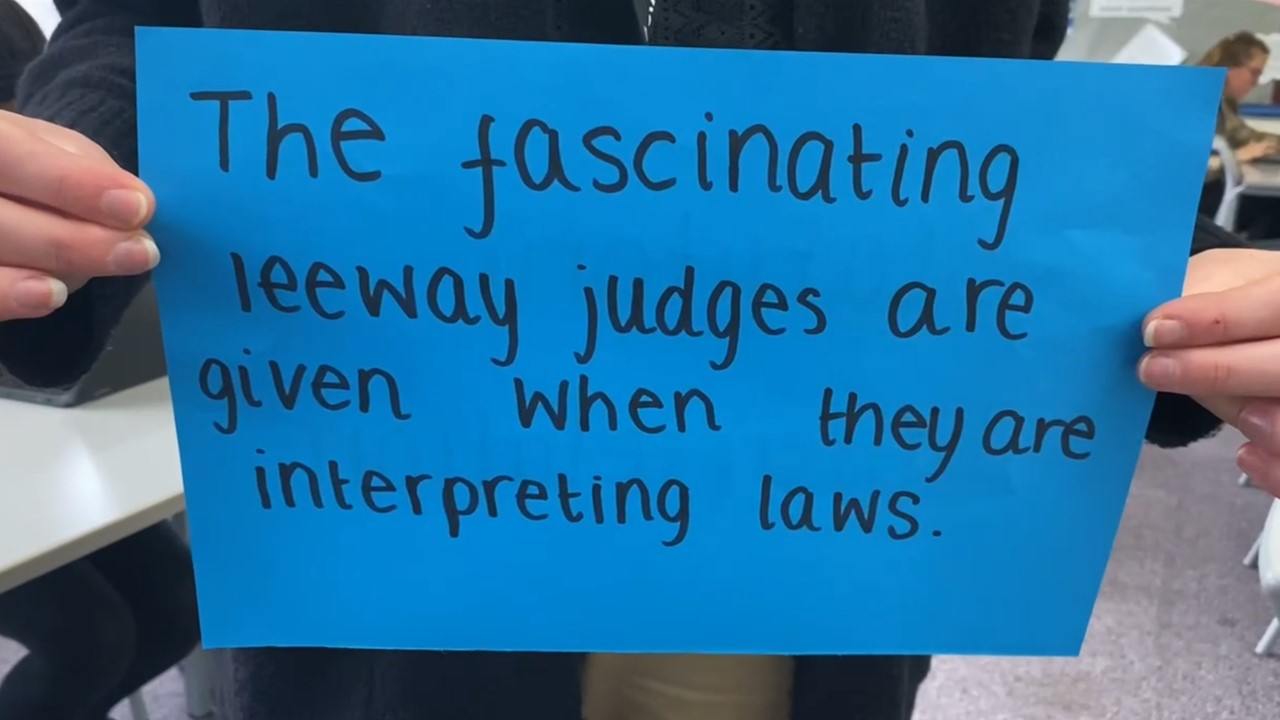
The Course
This course is equivalent to one A level. The course will inspire learners to study law and prepare for higher education or employment.
It will provide an introduction to the study of the legal profession through units on dispute solving alongside aspects of criminal law. Students will be given scenarios where they are asked to apply the law correctly to the situations given. They will also have the opportunity to study one unit from either family law, consumer law, contract law or tort.
Why Law?
Law provides students with the opportunity to gain a nationally recognised qualification to enter employment in the legal sector or to progress to higher education qualifications at degree level.
Provides students with a wide range of skills and techniques together with personal skills and attitudes essential for successful performance in working life and to allow access to employment opportunities in the legal sector.
Many students study Law and Criminology in the Sixth Form.
What’s expected from me?
Research, reading around the subject, proactive attitude, independent style of learning, good time management, organisation, meeting deadlines and applying theory to given situations.
Entry requirements: students should have achieved a Grade 4 or above in either GCSE History or GCSE English Language.
Examination Board: Pearson BTEC Level 3 National Extended Certificate in Applied Law
ZWH42 -Pearson Code
MATHEMATICS - A LEVEL: level 3
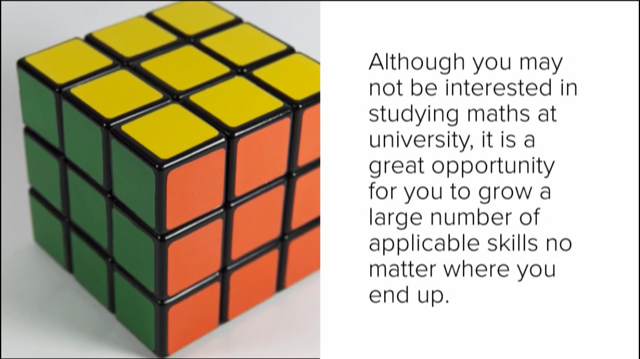
The Course
Are you enjoying Maths at school? Do you enjoy solving problems? If so, you should seriously consider A Level Mathematics.
A level Mathematics is an interesting and challenging course which goes beyond the methods and concepts learned at GCSE. These include applications of Pure Mathematics, Statistics and Mechanics Mathematics.
The Pure Mathematics topics include algebra, co-ordinate geometry, polynomials, trigonometry, calculus, differentiation and integration techniques, partial fractions, vectors and differential equations.
In Statistics you will learn to collect and analyse data and use it to make predictions about future events. Many subjects and careers make use of statistical information and techniques. An understanding of probability and risk is important in careers like insurance, medicine, engineering and the sciences.
In Mechanics, you learn to model and analyse the physical world around us, including the study of forces and motion. Mechanics is particularly useful to students studying physics and engineering.
This is a two-year linear course which has a total of three exams of two hours each at the end.
Why Maths?
A Level maths is a challenging subject, but it is also one that is extremely rewarding if you are prepared to put in the time and the effort. It is about applying different concepts and thinking outside the box in solving problems. Maths is used in a wide range of industries such as engineering, architecture, business, finance, science, technology, aviation and many others. A mathematics A Level can open so many doors for you. In fact there is currently a national shortage of qualified mathematicians, so this course will give you a competitive edge with future employers. Employers are constantly on the lookout for people who are competent in mathematics and are good problem solvers. This course will give you a solid grounding in these skills and will give you that extra edge in the competitive job market.
Throughout the course you will gain: an understanding of the mathematics that underpin many aspects of our lives
What’s expected from me?
You should have a passion for mathematics, be resilient and open minded when developing your understanding of the concepts of the course. You need to be proactive, be good at managing your time and have good organisational skills in order to keep on top of your deadlines.
After Sixth Form
Many students go on to pursue careers in medicine, research and development, engineering, statistics, operational research, computing, accountancy, actuarial work, business management, insurance and teaching. If you are hoping to pursue a course in science, mathematics or engineering at university, maths is compulsory.
Entry requirements: students should have achieved a Grade 6 or above in GCSE Mathematics.
Examination Board: Pearson Edexcel Level 3 Advanced GCE in Mathematics
PERFORMING ARTS BTEC: Level 3 - enrichment

The Course
This course is equivalent to one A level. This exciting course will suit students who enjoy performing, working together and developing ideas and concepts. You will develop a range of skills relating to dancing, acting and singing. The course provides opportunities to develop skills in creativity and performance, audition preparation and professional training in each discipline. The course is defined through a variety of unit options, enabling students to develop, both practical and theoretical skills in each discipline. You will be expected to take a two-hour theory exam using research you have collated about different practioners (concentrating on your specialism – Acting/Dance or Musical Theatre). You will also be expected to produce and perform in a minimum of two external performance including the whole school show and a straight play or dance performance. You can choose from the following pathways; Dance, Drama or Musical Theatre.
Focus this year has been on:
- Acting Styles
- Performing in different texts
- Musical theatre
- Choreography for live performance
- Contemporary dance technique
- Group performance work (devised)
- Physical theatre techniques
- Community theatre.
Why Performing Arts?
The Performing Arts BTEC is a very useful qualification as it prepares students for degrees in Drama, English, Humanities and any Performing Arts course. In the past we have students successfully audition for Acting courses, Dance courses and also theatre technician courses.
Students tend to be good communicators and the course helps to refine and develop these skills, which are useful in all walks of life. Performing Arts is useful for a career in Teaching, Business, Marketing, Law, Advertising and also Health and Social Care.
What’s expected from me?
Students need to be interested in all aspects of Performing Arts. Excellent time management skills are essential and you must be confident performing in front of an audience.
Entry requirements: students should have achieved a minimum of a Grade 4 at GCSE in at least one Performing Arts subject, plus a minimum of a Grade 4 in GCSE English.
Examination Board: BTEC Level 3 Pearson
PHOTOGRAPHY - A LEVEL: level 3

The Course
This course will develop your intellectual, imaginative and creative skills. You will work with many different photographic media to develop your experimental, practical, technical and expressive skills. A Level Photography disciplines include film based photography and digital photography.
During the course students complete Component 1 - A personal, practical investigation supported by written material. Students are required to conduct a practical investigation, into an idea, issue, concept or theme. The focus of the investigation must be identified
independently by the student and must lead to a series of related finished outcomes. Students will be provided with examination papers (externally set assignment – Unit 2) in February in Year 13. The question paper will consist of a choice of eight questions to be used as starting points. Students are required to select one and produce a practical investigation.
Why Photography?
You will have the opportunity to work with a broad range of media, including traditional and new technologies. You will visit galleries and studios and develop your knowledge of Photography in contemporary and past societies. Please be aware that Photography is coursework based and requires a lot of time and dedication.
Students who are particularly creative can study Art and Photography at A level.
What's expected from me?
When studying A Level Photography students are expected to utilise their free time effectively to ensure all work is completed. We have a Sixth Form area within the department for students to use during their study periods. Students are expected to meet deadlines and ensure the work they produce is to a consistently high
standard.
Entry requirements for A Level Photography: students should have achieved at least average Grade 4 or above across their subjects at GCSE.
Examination Board: AQA Level 3 Advanced GCE in Art and Design / Photography
PHYSICAL EDUCATION - A LEVEL
The Course
A broad basis of study for the sport sector. This qualification is designed to support progression to higher education when taken as part of a programme of study that includes other appropriate BTEC Nationals or A Levels. AQA A-level Physical Education is an Applied General qualification for post-16 learners who want to continue their education through applied learning and who aim to progress to higher education and ultimately to employment in the sport sector.
The content of this qualification has been developed in consultation with academics to ensure that it supports progression to higher education. Employers and professional bodies have also been involved and consulted to confirm that the content is appropriate and consistent with current practice for learners who may choose to enter employment directly in the sport sector.
During the course, the following topics are covered:
What could this qualification lead to?
The qualification carries UCAS points and is recognised by higher education providers as contributing to meeting admission requirements for many courses if taken alongside other qualifications as part of a two-year programme of study. It combines well with a large number of subjects and supports entry to higher education courses in a very wide range of disciplines (depending on the subjects taken alongside).
For learners who wish to study an aspect of sport in higher education, opportunities include:
A Level Biology and A Level in Psychology
What's expected from me?
Qualification structure

Entry requirements for AQA A-Level Physical Education: students should have achieved a GCSE Physical Education Grade 5 and a Grade 4 in Maths, English and Science. You need to play competitive sport outside of school to a good level.
Physics - A level: level 3
The Course
Throughout this course, you will build on your knowledge of radiation, waves and electricity. You will learn about nuclear physics, mechanics and thermal physics as well as astrophysics. In Year 13, you will be expanding your understanding of these areas by linking it to different professions; medical, engineering and astrophysics.
Why Physics?
As an integral part of the A-level Physics course you will have the opportunity to develop a range of practical skills highly in demand among employers; planning investigations, problem solving, collecting precise/accurate data and interpreting results mathematically to allow valid conclusions to be drawn.
Physics has natural links with all other sciences such as Chemistry, Biology and Psychology, as well as Physical Education/ Sport, A level Mathematics and Geography.
Students may go on to study and gain employment in the following sectors - Computer Science, Biotechnology, Forensic Science, Medicine, Sports Sciences, Engineering, Mathematics or Natural Science for example. You may also combine Physics with non- scientific subjects such as English and Psychology, but should definitely take A-level Mathematics.
What’s expected from me?
We expect enthusiasm, personal organisation and dedication. You need to demonstrate that you are keen to learn, to make progress and to be actively involved in all aspects of the course as well as the wider Science department. You will need to plan ahead to meet deadlines, be independent in expanding the breadth and depth of your knowledge and be pro-active in identifying areas for development. You should also be simultaneously taking A-Level Mathematics as the content in Physics is heavily dependent on a solid comprehension of A-Level Mathematics.
Entry requirements: students should have a Grade 6 or above in GCSE Physics, or 6-6 or above in GCSE Combined Science. A Grade 6 or better in GCSE Mathematics is also required, as well as a Grade 5 in GCSE English.
Examination Board: OCR Level 3 Advanced GCE in Physics A, Specification H556
PSYCHOLOGY - A LEVEL: level 3
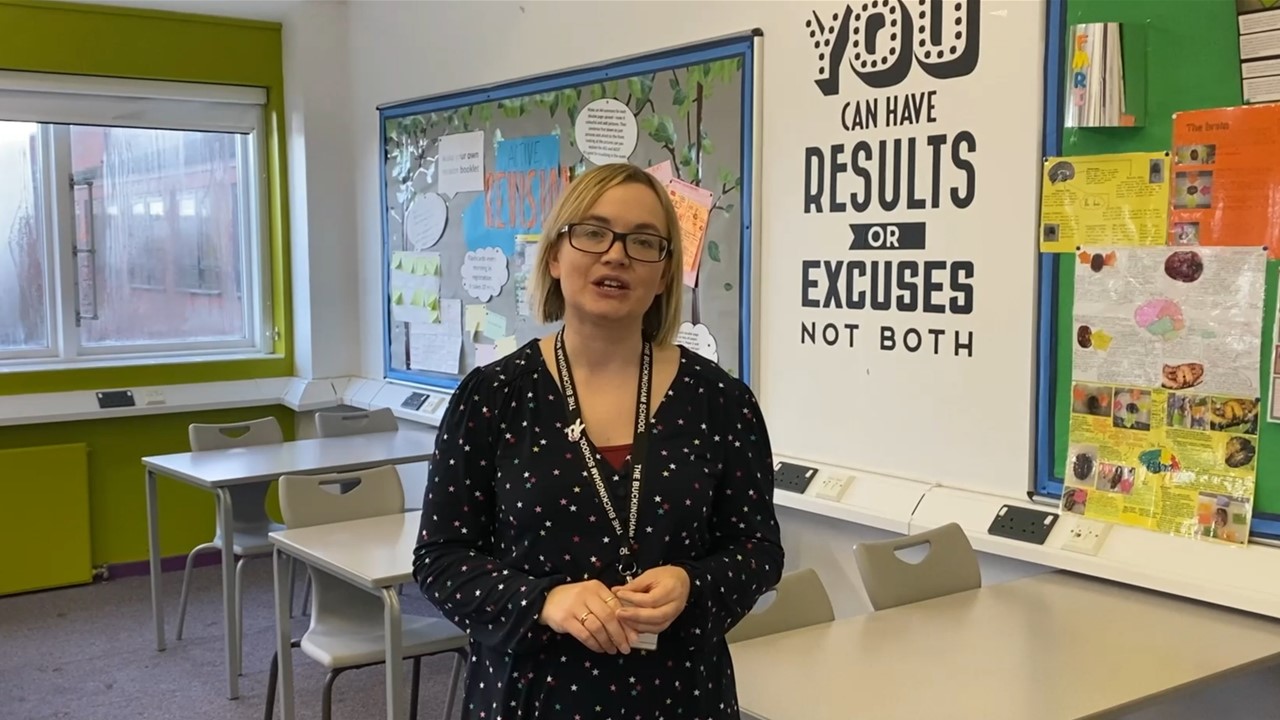
The Course
This interesting and challenging course allows students to develop a clear and scientific understanding of why humans behave as they do. In comparison to Applied Psychology you will study a wider range of topics. You will explore human behaviours and functions such as memory, criminal behaviour, mental disorders and social influence, from both psychological and biological perspectives. You will learn how to design, conduct and report scientific research studies and explore the limits of such studies.
The course is completed with three external exams at the end of the two years and has no coursework element.
Why Psychology?
A Level Psychology combines well with any other science A level as well as Geography, PE, Business Studies, Film Studies, Criminology and English Literature. It is a useful subject to study for a broad range of career options and would be valuable in any career which involves working with people. Previous students have gone on to pursue careers in business, sport, law, and finance careers as well as the more obvious police and social care sectors. Many universities recognise Psychology as a science A Level, meaning students who require two sciences for their university course can have Psychology as an enabler.
What’s expected from me?
We expect students to actively participate in class discussions, to have an open and enquiring mind and to work and think independently at all times.
Students should be prepared to take part in group work and in research studies. They will need to utilise their free time effectively to ensure that all work is completed. We want you to challenge each other and members of staff.
Entry requirements for A Level Psychology: students should have achieved at least a Grade 5 or above in Mathematics, English and two sciences. A GCSE in Psychology is not required to be successful in this subject at A Level.
Examination Board: AQA Level 3 Advanced GCE in Psychology
PSYCHOLOGY - btec: Level 3 Extended Certificate

The Course
This course is equivalent to one A level. This exciting course enables learners to study Psychology in an applied and focused way in comparison to the A Level. You will gain an understanding of the fundamentals in Psychology by studying applications of psychological approaches before conducting your own psychological research. You will also have the opportunity to then go on and study health psychology plus one unit from either criminal and forensic psychology, introduction to psychopathology or applied sport psychology.
The content of this qualification has been developed in consultation with academics to ensure that it supports progression to higher education. The qualification provides the knowledge, understanding and skills that will prepare you for further study or training.
It is suitable for students that wish to study Psychology who prefer a mix between coursework assessed units and external examinations.
Why Psychology?
The Applied Psychology course combines well with any other science A level as well as Geography, Sport, Business Studies, Film Studies, Criminology and English Literature. It is a useful subject to study for a broad range of career options and would be valuable in any career which involves working with people.
What’s expected from me?
- You need to be passionate about why humans and animals behave the way that they do
- You should be a curious learner who is prepared to contribute to class discussion and work hard
- You will need to be self-motivated and good at meeting deadlines.
- This course has a substantial amount of independent study.
Entry requirements for A Level Psychology: A grade 4 in English, Maths and at least one Science
Examination Board: AQA Level 3 Advanced GCE in Psychology
spanish - a level: level 3
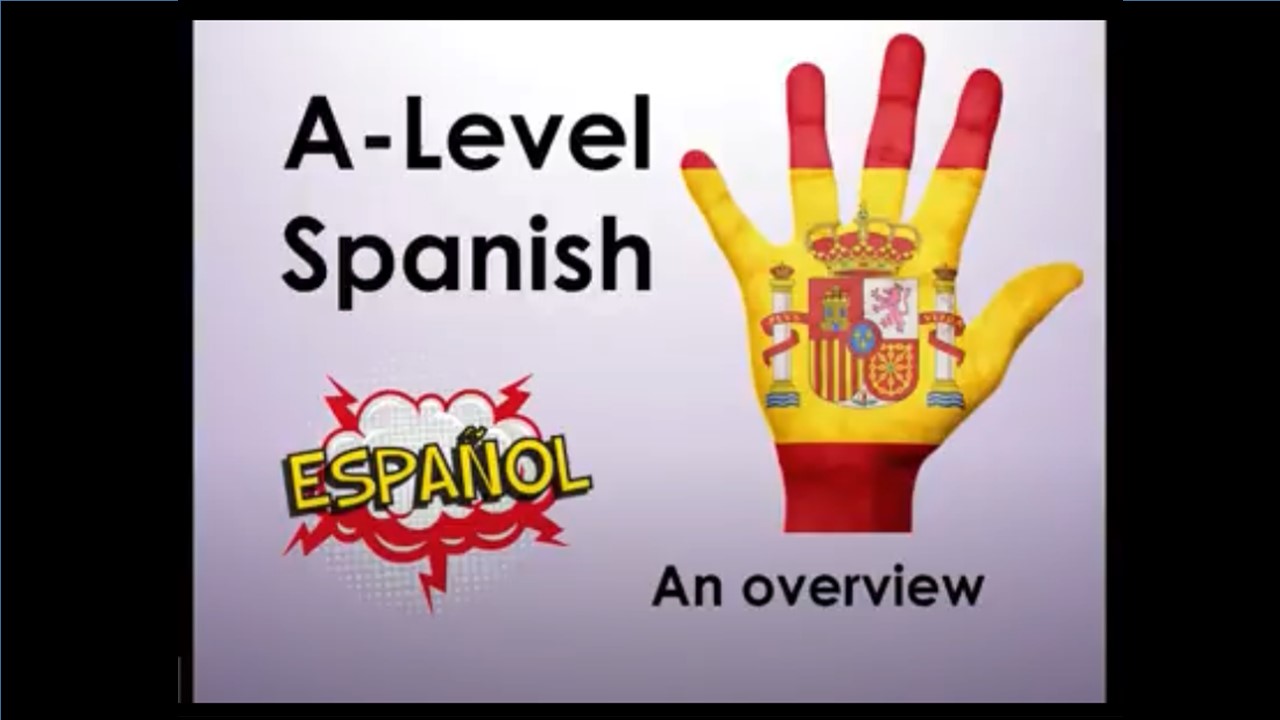
The Course
The A Level specification builds on the knowledge, understanding and skills gained at GCSE. It constitutes an integrated study with a focus on language, culture and society. It fosters a range of transferable skills including communication, critical thinking, research skills and creativity, which are valuable to the individual and society.
Students will develop their knowledge and understanding of themes relating to the culture and society of countries where Spanish is spoken, and their language skills. They will do this by using authentic spoken and written sources in Spanish.
The following elements make up the content of this two-year course:
- Social issues and trends
- Political and artistic culture
- Grammar
- Works – study of literature/film
- Individual research project
Why Spanish?
Spanish is the second most widely-spoken language in the world with over 400 million speakers. Being able to speak Spanish can provide you with numerous academic and career opportunities.
Language skills alone are already an advantage in potential employers’ eyes, but Spanish even more so, as it’s so widely spoken. Many British and American companies conduct business in Spanish-speaking countries, and with over 30 million Spanish speakers in the US alone, it’s a great skill to have if you’re looking to work abroad. Moreover, Spanish is the third most commonly used language on the Internet.
What’s expected from me?
You should have a passion for learning the language and be interested in exploring the culture and society of Spanish speaking countries.
You should have a sound knowledge of the Spanish grammar and a broad vocabulary. You will be expected to have a proactive attitude, an independent style of learning, good time management and organisation skills as well as being able to meet deadlines.
Entry requirements: students should have achieved at least a grade 6 or above in Spanish GCSE.
Examination Board: AQA
sport BTEC: Level 3 Extended Certificate
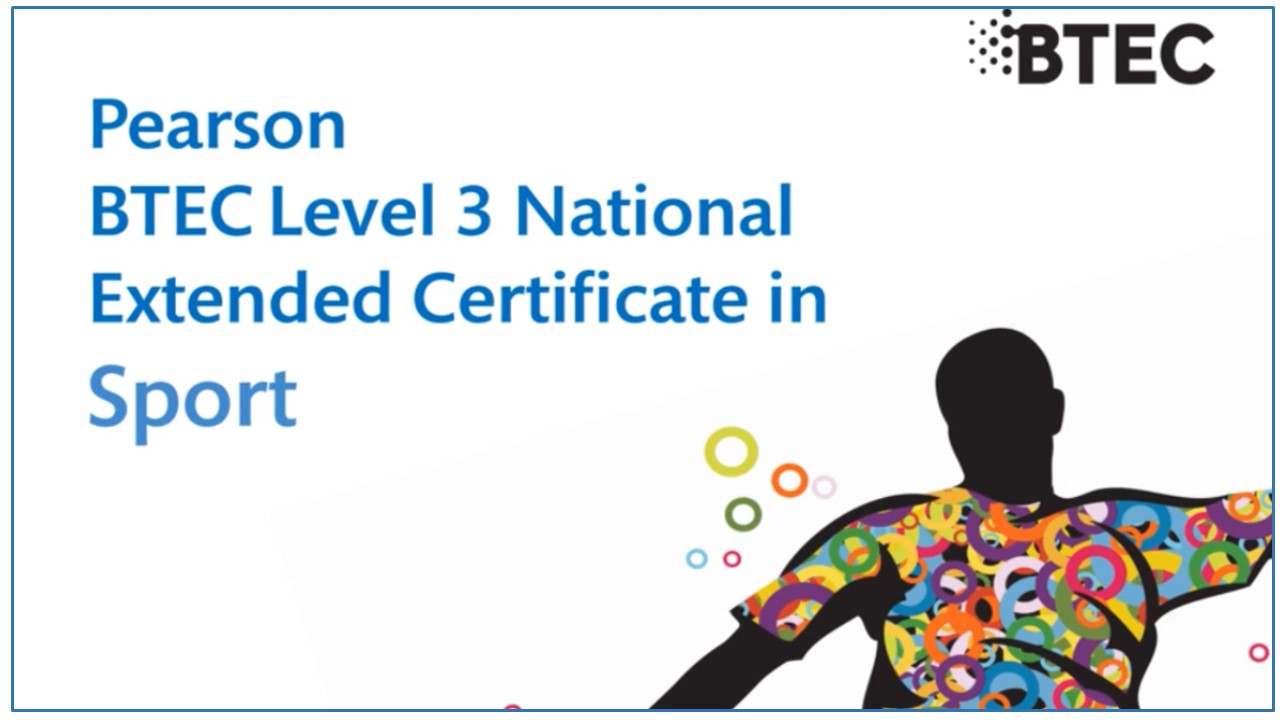
The Course
A broad basis of study for the sport sector. This qualification is designed to support progression to higher education when taken as part of a programme of study that includes other appropriate BTEC Nationals or A Levels. The Pearson BTEC National Extended Certificate in Sport is an Applied General qualification for post-16 learners who want to continue their education through applied learning and who aim to progress to higher education and ultimately to employment in the sport sector. The qualification is equivalent to one A Level, and it has been designed as a full two-year programme when studied alongside a further two Level 3 qualifications.
The content of this qualification has been developed in consultation with academics to ensure that it supports progression to higher education. Employers and professional bodies have also been involved and consulted to confirm that the content is appropriate and consistent with current practice for learners who may choose to enter employment directly in the sport sector.
You will study the following units:
Unit 1: Anatomy and Physiology
Unit 2: Fitness Training and Programming for Health, Sport and Well-being
Unit 3: Professional Development in the Sports Industry.
Unit 7: Practical Sports Performance
What could this qualification lead to?
The qualification carries UCAS points and is recognised by higher education providers as contributing to meeting admission requirements for many courses if taken alongside other qualifications as part of a two-year programme of study. It combines well with many subjects and supports entry to higher education courses in a very wide range of disciplines (depending on the subjects taken alongside).
For learners who wish to study an aspect of sport in higher education, opportunities include:
- BA (Hons) in Sport Studies and Business, if taken alongside A Levels in Business and Maths
- BSC (Hons) in Sport Psychology, if taken alongside A Level Biology and A Level Psychology
- BA (Hons) in Sports Education and Special and Inclusive Education, if taken alongside an A Level in English Language and a BTEC National Extended Certificate in Performing Arts
- BA (Hons) in Sport and Exercise Science, if taken alongside A Level Biology.
What’s expected from me?
You need to be passionate about Anatomy and Physiology, health, fitness, training, sport activities, practical sport.
- You will need to be self-motivated and good at meeting deadlines.
- This course has a substantial amount of independent study.
- You will be required to play two sports as part of unit 7.
- You will also be expected to take the Level 2 Sports Leadership award alongside this qualification.
Entry requirements for Sport BTEC Level 3 Extended Certificate: students should have achieved a GCSE Physical Education Grade 4 and a Grade 4 in Maths, English and Science.
Examination Board: Pearson BTEC Level 3 National Extended Certificate in Sport. VDG76 - Pearson Code
SPORTS LEADERSHIP - BTEC Level 2/3 - enrichment

The Course
These courses will help you to develop your organisation, motivation and communication skills. In Year 12 The Level 2 Community Sports Leadership Award will help you to become a positive role model in Sport, to learn how to mentor others and to use your leadership skills in a variety of different ways.
Achieving the nationally recognised Level 3 Higher Sports Leadership Award in Year 13 enables you to lead unsupervised groups of people in sport and recreational activities. It teaches generic leadership skills such as organisation, planning, communication and teamwork through the medium of sport.
Why Sports Leadership?
These courses will suit students who have a passion for sport and who may be interested in pursuing a career in sports management or leadership.
They combine well with Physical Education. They are fun and practical courses, with no entrance requirements or final examinations to sit.
What’s expected from me?
To begin the Level 2 Award, you may have already gained your Level 1 Award in Sports Leadership or this may be your first step on the volunteering pathway.
The Level 3 Award builds upon the skills and experience gained through the Level 2 Award in Community Sports Leadership and the Level 2 Award in Sports Leadership.
We expect students to be actively involved in sport outside school, to be enthusiastic and to be committed. Ideally students will be participating at a club level or above as a competitor, leader or as an official. You are also required to support and run extra-curricular clubs during break-times, lunch-times and after school clubs.
Students will need to complete 10 hours for Level 2 and 30 hours for Level 3 of Leadership in the community.
Examination Board: Sports Leaders UK Level 3 Certificate in Higher Sports Leadership (QCF)
WORK EXPERIENCE - ENRICHMENT
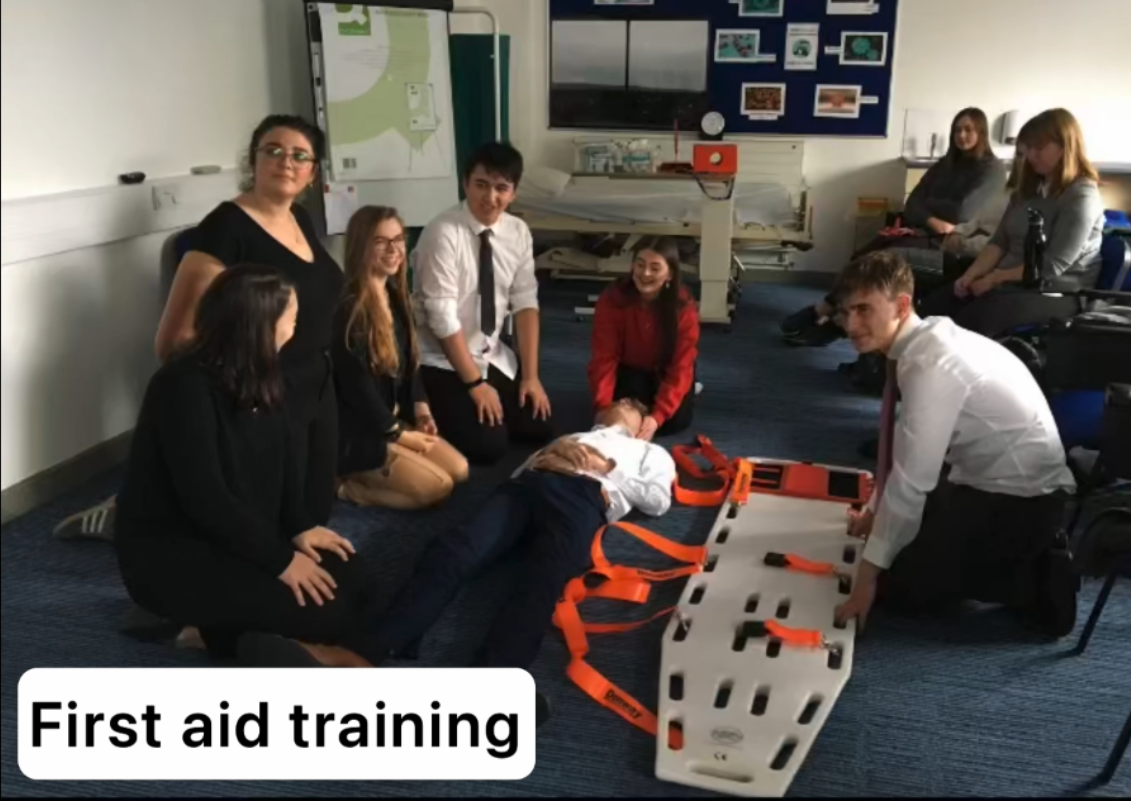
Why Work Experience?
Work experience offers an opportunity to get experience in a chosen career, to gain key soft skills and knowledge in the competitive working environment.
On work placements, you will get the opportunity to work in a particular role or work in a variety of roles.
If you are unsure of your career pathway, work experience gives you an unique opportunity to explore a wide range of career pathways, learning and enhancing new soft skills. It is also a great way to put theory into practice and can help you gain actual skills, such as using a piece of equipment or software.
Work experience also helps you to:
- Evaluate your skills and knowledge and focus on developing them
- Build your confidence through working with others
- Evidence your ability to take on new challenges and succeed in new areas of your professional development
- Bridge the Sixth Form and the world of work gap
- Gain valuable advice from professionals working in a variety of industries and hear their stories
- Obtain references for future job applications and career opportunities
- Help you to understand how organisations work from an internal perspective and how they are affected by external market forces
- It also allows you to establish a clearer picture of what kind of working environment and career pathways may suit you
Young enterprise - enrichment
Why Young Enterprise?
Young Enterprise offers students the opportunity to set up and run a student company under the guidance of an external business volunteer. Students make all the decisions about their business, from deciding on the company name, managing the company finances and selling to the public.
Students gain the practical business experience, adaptability, entrepreneurial mindset and employability skills needed to secure successful futures.
Young Enterprise supports students to gain confidence, practical know-how and attributes to prepare for the world of work. By taking part in an online self-assessment, students will also receive a certificate to evidence the skills they have developed throughout the programme.
Young Enterprise also helps you to:
retake - english Gcse level 2
This Course
This course is mandatory for students who achieved less than a Grade 4 in their English GCSE. Students will spend at least the same amount of time on homework as they spend in the classroom. The focus is on revision and exam style questions. This course covers the same material as the GCSE English course, revision is condensed to fit into two-and-a-half terms.
Why Retake English?
It will help students in their Sixth Form courses and achieving a level 4 or above and will enable them to access courses at university, , access other education institutions and future employment.
What's expected from me?
Entry requirements for English Retake: a mandatory requirement for any students who have not achieved a Grade 4 or higher in English.
Examination Board: AQA Level 1/Level 2 GCSE
(9-1) in English Language
retake - maths Gcse level 2
This Course
This course is mandatory for students who achieved below a Grade 4 in their Maths GCSE. Students are expected to spend their lesson time and an additional 3 hours outside of class studying the areas of Mathematics that will support them gain at least a level 4 or above in the GCSE examination. The focus is on revision and exam style questions. This course covers the same material as the GCSE mathematics revision is condensed to fit into two-and-a-half terms.
Why Retake Maths?
It will help students in their Sixth Form courses and achieving a Grade 4, or better, will enable them to access courses at university, access other education institutions and future employment.
What’s expected from me?
Entry requirements for Maths Retake: a mandatory requirement for any students who have not achieved a Grade 4 or higher in Maths.
Examination Board: Pearson Edexcel Level 1/Level 2 GCSE (9-1) in Mathematics


